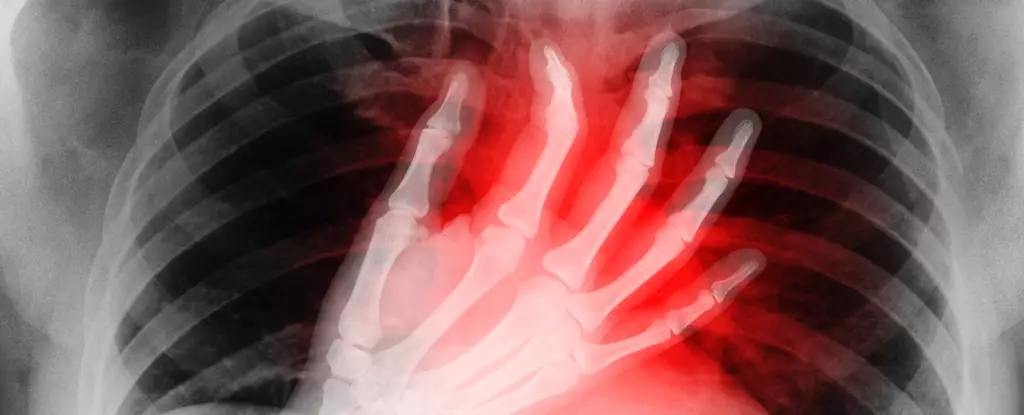The holiday season is often synonymous with celebrations, gatherings, and an uptick in alcohol consumption. While enjoying festivities, many people may indulge in excessive drinking, leading to a host of health concerns, particularly concerning heart health. Among these is a phenomenon known as “holiday heart,” a term that captures the worrying trend of alcohol-induced heart irregularities that many experience during this period. Understanding the correlation between excessive alcohol intake and its impact on heart rhythm is crucial to navigating health risks associated with celebrations.
Holiday heart syndrome, a term first coined in the 1970s, refers to the irregular heart rhythm observed in individuals without any prior heart conditions after episodes of heavy drinking. Each year, around the festive season, health professionals witness a significant rise in cases related to this issue. Symptoms can range from mild sensations like heart flutters to severe complications such as palpitations and even fainting. These symptoms can often lead to alarming trips to the emergency department, where initial tests reveal an anomaly in heart rhythms that can be alarming to patients expecting a festive gathering rather than a visit to a hospital.
The flurry of holiday parties, combined with accompanying stressors—overindulgence in food, heightened stress levels, and dehydration—creates a perfect storm for those susceptible to heart rhythm problems. This risk is exacerbated in individuals who may already have underlying issues exacerbated by binge drinking. The disturbing truth is that even those without prior health issues can find themselves in danger due to excessive consumption.
Alcohol affects the body in multifaceted ways. One of the significant impacts is its role in disrupting the autonomic nervous system, which in turn can lead to dehydration, inflammation, and a cascade of disturbances to the heart’s electrical pathways. These disruptions can cause atrial fibrillation, a common heart rhythm disorder characterized by an irregular and often rapid heartbeat, possibly leading to severe complications like stroke or heart attack if untreated.
It’s important to recognize that even if symptoms are absent, alcohol-related arrhythmias can manifest unnoticed. Many people may live with irregular heartbeats or other cardiac symptoms without realizing the root causes tied to their drinking behaviors. Regular check-ups and awareness of one’s own consumption patterns can be crucial in mitigating potential health issues.
For those who experience symptoms associated with holiday heart, seeking medical assistance is paramount. Healthcare providers will likely conduct an electrocardiogram (ECG) to assess heart rhythm, alongside blood tests to check for electrolyte imbalances, kidney function, and inflammation markers. The compatibility of these tests can help clinicians determine the most appropriate course of action.
The good news is that most individuals diagnosed with holiday heart syndrome recover fully, especially when they receive timely intervention and modify their drinking habits. However, the road to recovery may vary significantly for individuals diagnosed with atrial fibrillation, which may necessitate medical intervention ranging from medication aimed at restoring normal heart rhythm to more invasive procedures like electrical cardioversion.
Prevention: Tips for a Heart-Healthy Holiday
Prevention is the first line of defense against holiday heart syndrome. The Australian government offers guidelines recommending that individuals limit their alcohol consumption to no more than ten standard drinks a week and no more than four in a single outing. Furthermore, it is advisable to incorporate hydration into celebrations by alternating alcoholic beverages with water, which can help mitigate dehydration effects.
In addition to mindful drinking, taking steps to lower stress levels, maintaining a balanced diet, and engaging in regular physical activity can enhance overall heart health, regardless of alcohol consumption. These practices not only contribute to cardiovascular well-being but also promote a more enjoyable festive season free from the repercussions of excessive drinking.
As we enter the festive period marked by gatherings filled with merriment and cheer, a conscious awareness of alcohol consumption’s implications on heart health is vital. By understanding the risks associated with binge drinking, individuals can enjoy the season while safeguarding their well-being. Being proactive about drinking habits, recognizing potential symptoms, and seeking timely medical assistance can lead to healthier celebrations and a more enjoyable holiday season. Ultimately, the goal is to create joyful memories, not heart palpitations.


Leave a Reply